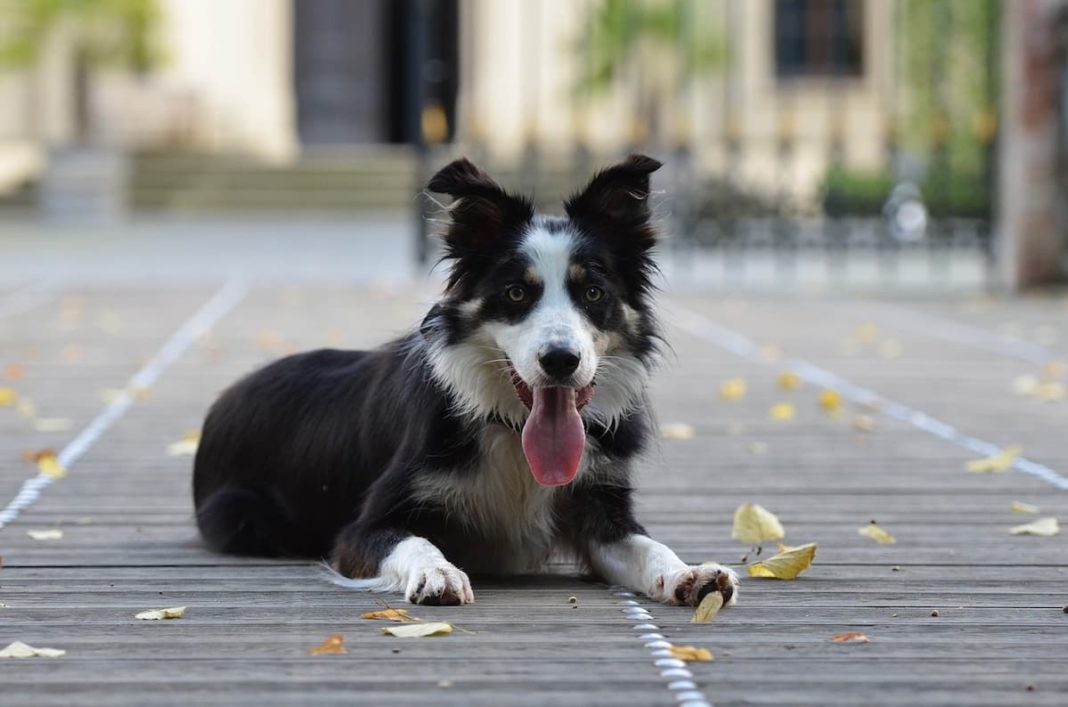Do Border Collies Need Another Dog?
Collie owners are a lot like actual parents. Not only do they worry about meeting their border collie’s daily needs — like exercise, food and even the understood daily cuddle quotient — they also worry about their dog’s psychological needs. No parent wants their kid (or in this case a dog) in therapy someday blaming all of their issues on their parents, right? Although our dogs can’t actually grow up to say, “MOM I JUST FOUND OUT THAT I SUFFER FROM ONLY CHILD SYNDROME, AND IT’S ALL YOUR FAULT,” as dog parents, we can still secretly worry about it.
One of the few questions that may keep you up at night: is it fair to keep just one dog? Am I, as a human, enough for my collie? Does your dog need a brother or sister to play with and lean on in their times of only another-dog-could-possibly understand the need (kind of like, when the living room is full of chew toys, but none of them are just the right chew toy, and those humans just don’t get it)?
Here are a few things that you need to know about raising an only dog, and whether or not growing your doggie family is a good idea.
Do Dogs Get Lonely?
The quick answer is yes. It’s possible for your border collie to get lonely. Anyone that uses a pet cam and a functioning heart know in their bones that it’s true.
Perhaps you’ve gone all day at work and worry about your border collie spending hours alone like a house hermit. Or, maybe you work from home, but simply can’t give your collie the attention that you’d like to. Whatever the reason, here you are, wondering if it would be a good idea to have another dog around 24/7.
Why Do Dogs Get Lonely?
Simply put, dogs get lonely because, because like us humans, they have feelings. A dog has the emotional range of a child, which means that, even though they might not have the ability to process complex emotions like regret or pride, dogs can definitely feel the more basic emotions like sadness, anger, joy, disgust, anger, fear and contempt.
Loneliness is like a kind of sadness (as anyone who has ever felt lonely can attest to) and dogs can definitely feel it. In addition to being able to be lonely, dogs can also be prone to separation anxiety.
As dogs are pack animals by nature, they’re wired to not only crave but thrive off of social connections. Even as the wolf has developed into the modern-day dog as we know them, we’ve kept them wired for social activity. Not only do we want our dogs to be social and play with us, historically, we’ve also bred them to be social to work with us too.
Signs A Dog Is Lonely
If you believe that your dog is getting seriously lonely during the day, then they should let you know by a few signs. Signs to look out for like a sudden uptick or sudden destructive behavior — if your dog is usually well-behaved and has started using the bathroom inside or maybe starting to chew up the sofa, then they may be acting out and begging for attention. Another sign would be a decreased appetite, loss of interest in their favorite activities (like the long walk they used to love), and the dog starts to ignore you when being called. If left untreated, this could lead to a dog suffering from depression, which is not something anyone wants.
Is My Dog Lonely Without Another Dog?
Truthfully, your dog is lonely when they’re alone. So, it’s not necessarily about the need to have another dog around the house — although a second dog could help.
How Do I Know If My Dog Needs A Companion Dog?
If you need to leave your dog home alone for long periods of time, or perhaps you suspect that your dog is feeling lonely, they may benefit from having another companion around the place. Having another dog around means your dog won’t ever have to feel like they’re losing the social component that’s so important to their pack-animal psyche, and it could alleviate any guilt if you’re stuck at work late.
If you have the space, time and money for a second dog, then it could be worth considering. However, it’s never fair to bring another dog into your home if you’re not equipped, in any way, to properly care for it. Not only does a second dog mean twice as much food, but it also means a groomer for two or additional dog-walker fees, twice as many trips to the veterinarian, and twice as much attention and love from their owner on the nights and weekends when you are around.
You’re not the only dog owner that asks themselves if I “should get a second dog” equation, either. If you believe that your dog’s loneliness has given way to full-blown separation anxiety, then another dog may not be the best solution.
Rather than helping the first dog to feel more adjusted, the new dog may come in and just mimic the lonely dog’s anxiety, and you’d end up with having two anxious and potentially aggressive dogs on your hands. If your dog has been diagnosed with separation anxiety by your vet, then it’s important to introduce a second dog slowly, having their first meet and bond on neutral territory. i.e., the park before the new dog moves in.
Do Dogs Want Another Dog Companion?
“Should I get a second dog to keep my collie company?” is probably a question most collie owners ask themselves at some point. The problem with the question is that there isn’t a single answer that applies to all collie. While some collie would love the company of another dog, others may prefer to keep you all to themselves. Figuring out what’s best for your border collie requires some careful consideration.
A Matter Of Personality
Put simply, although dogs are pack animals, not all will do well with a companion. There could be a number of reasons for this. For example, a dog that might have been bullied or attacked by another animal before so now they have no tolerance and in some cases, even extreme fear of other dogs can be a problem. Traumatized dogs could tolerate a second dog in the house, but that doesn’t mean they’ll necessarily be happy about it. There’re dogs that have a strong and deep bond with their humans, so bringing a new dog into the home may disrupt that relationship. On the other hand, your border collie could be very friendly and highly sociable and will love spending time with another dog – in this case, getting another dog companion could be a great idea.
Interspecies Friendships
Dogs are social creatures – if a dog is properly socialized and trained from an early age. A socialized dog will make friends easier, not only with other dogs but other pets like cats. If you’re considering getting a smaller, non-canine animal for your dog to have a companion then, check their reaction first. Try taking them to a friend who has pets other than a dog. Make sure to keep them on a leash until you fully understand just how much they like the other animal.
The Gender Factor
In most cases, border collies of opposite genders tend to get along better than two collies that are of the same sex. The reason is that a male and a female won’t compete as much to be the “top dog”. If you’re unsure as to whether your border collie will accept a companion, you can try to bring a doggie of the opposite sex into your home for a while to see if there’s a positive outcome first. However, make sure that both dogs are desexed, or you could have a problem.
Loneliness And Companionship
Ideally, you shouldn’t be leaving your collie alone for long periods of time. Not only can it get boring for your dog, but it could be dangerous, as many dogs get into trouble when they’re bored. If you work long hours, though, getting a second dog may help your dog feel less lonely. But keep in mind that this shouldn’t replace human-dog.








